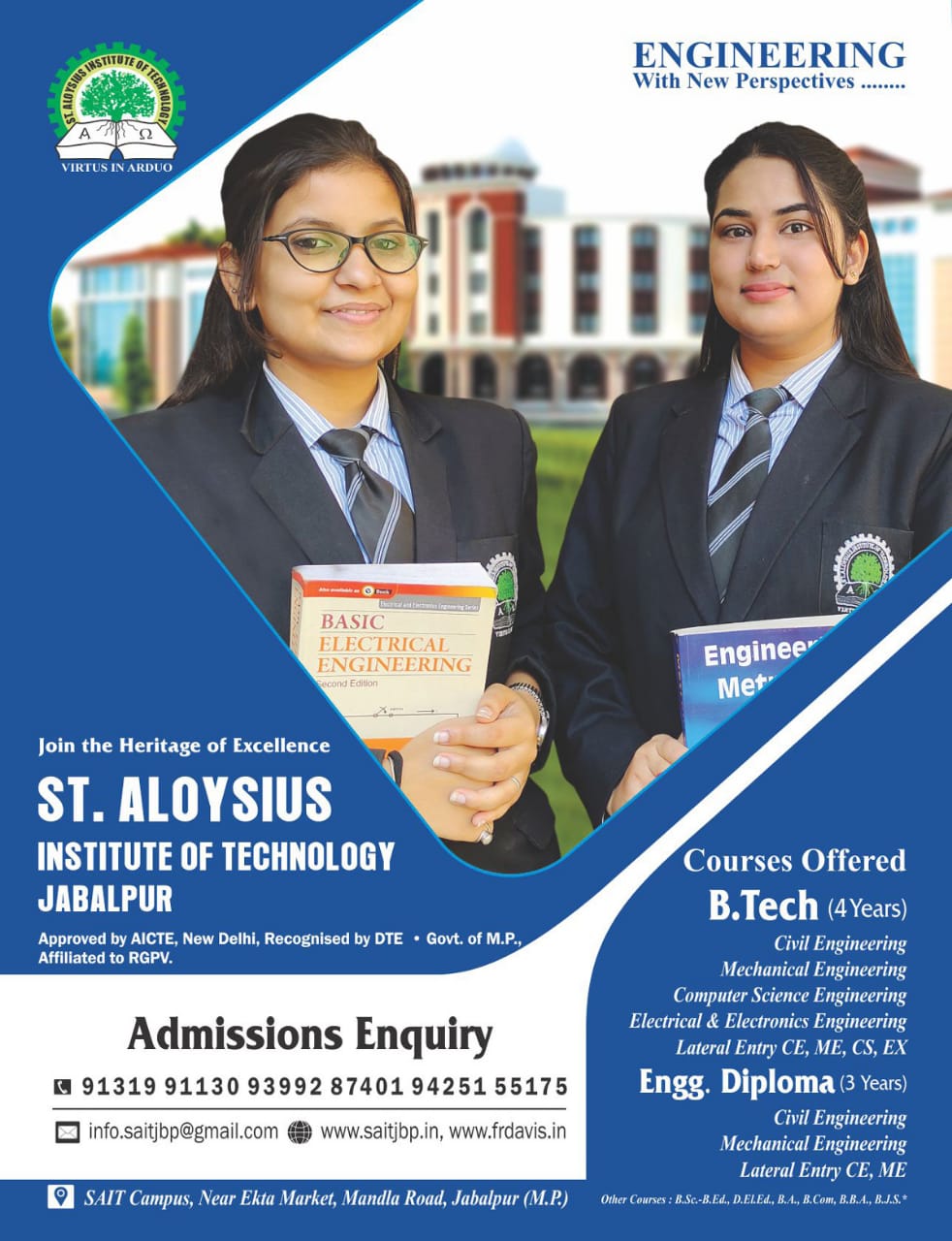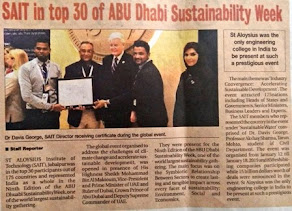1. Introduction
There is a story of an
eagle, which gently coaxed her offspring toward the edge of the nest. Her heart
quivered with conflicting emotions as she felt their resistance to her
persistent nudging. “Why does the thrill of soaring have to begin with the fear
of failing?”
As in the tradition of the
species, her nest was located high on the shelf of a sheer rock face. Despite
her fears, the eagle knew it was time. Her parental mission was all but
complete. There remained one final task- the push. The eagle drew courage from
an innate wisdom. Until her children discovered their wings, there was no
purpose for their lives. Until they learned how to soar, they would fail to
understand the privilege it was to have been born an eagle. The push was the
greatest gift she had to offer. And the decisive moment dawned and the eaglet
was gently pushed from the cozy and comfortable nest into the unknown horizon.
It was her supreme act of love. And so one by one she pushed them, and they
flew. Even the eagles need a push.
The difference between
achievers and non-achievers is that the first group is motivated and the second
group is not. Most people are good and qualified. Most of them can do much
better than what they are doing. But they desist and resist change as it would
dislodge their comfort zone and they would prefer to remain where they are and
as they are. Fewer expectations, less demands and less work. And it works, they
think. They have to be shown that the same things can be done in a better way.
The missing link is the spark of motivation. Achievers do not do different
things but they do things differently.
2. Motivation defined and explained
Motivation is that invisible
force that ignites the mind, sets your heart with feelings of zeal and zest and
propels you into action. It can persuade, convince, inspire, encourage and lead
you into action, changing your vision and life. It is the driving force in our
lives. It comes from a drive to succeed and have fulfillment in life. One has
to cultivate the right attitude and positive self-talks. Knock off the ‘t’ from
can’t and constantly indulge in auto-suggestion that I can.” “Impossible” has
to be turned into I’m possible. My students have taken “They can because they
think they can”, - to be a magic formula. It has done wonders in the lives of
thousands of students both of St Aloysius Senior Secondary School where I was
the Principal for ten years and the students of St. Aloysius College where I am
the Principal for the last ten years. In many of the human and spiritual resource
development programme I conducted in India and abroad for the last twenty
years, I have witnessed the miracle of motivation. To be inspired and motivated
means to move forward with purpose and enthusiasm. Purpose denotes clarity of
intension while enthusiasm is derived form the Greek entheos, a god or sprit
within. The motivated and inspired person comes to life with the purpose and
passion, with the daily desire to grow and contribute. Only managers who can
deal with uncertainty, with ambiguity, and with battles that are never won but
only fought well can hope to succeed.
Motivation knows your purpose in life, Growing to reach your maximum
potential, and sowing seeds that benefit others, enabling you make your life a
success. Success is a journey rather than a destination. You will never exhaust
your capacity to grow towards your potential or run out of opportunities to
help others. You will never have the problem of trying to “arrive” at an
elusive final destination. The very moment that you make the shift to finding
your purpose, growing to your potential, and helping others, you are on the
path of success. The only true measure of success is the ratio between what we
might have been and what we have become. In other words, success comes as the
result of growing to our potential. It’s been said that our potential is God’s
gift to us, and what we do with it is our gift to him. Our potential is
probably our greatest untapped resource. Henry Ford observed, “There is no man
living who isn’t capable of doing more than he thinks he can do.” Find out what
you are searching that will set your soul on fire and pursue it. And then as
President Theodore Roosevelt said, “Do what you can, with what you have, where
you are.” Never wait for inspiration or permission or an invitation to get
started. That is motivation. Clarity of
the vision and mission would play a vital role in motivating and translating
the dream into reality.
3. Setting goals: Make Goals “SMART”
According to a study of
American employee attitudes, only about half of employees say they understand
how their organizations will assess their job performance. Supporting
performance needs to start with making expectations clear. Without clear
expectations, it's difficult for staff to know where to focus their energies,
how to improve, or whether they're doing a good job.
There are lots of catchy
frameworks for thinking about what makes a goal or expectation a good one.
Here's one such framework that may help you evaluate the expectations you
currently have for staff, and set new ones. A goal is "SMART" if it
is Specific, Measurable, Ambitious but Attainable, Relevant, and Time-based:
3.1
Specific. Goals like "the teacher will contribute effectively to the
college's curriculum planning process" aren't very helpful in guiding a
teacher's decisions and activities. To be effective, expectations need to
contain very specific ideas about what kinds of behavior and performance are
valued.
3.2 Measurable. Leaders and staff need ways of
measuring whether a team or individual staff member is attaining each goal.
"Measurable" does not necessarily mean "quantitative." But
even qualitative attributes can be measured - not with simple scores on tests,
but using rubrics that define different levels of performance. Creating such
rubrics is hard work, but without them, it's impossible for everyone to
understand what constitutes high performance.
3.3
Ambitious but Attainable. Setting goals requires striking a tough balance. On
one hand, to spur improvement, goals must be ambitious, pressing staff toward
higher performance. On the other, they must be attainable or staff will soon
come to disregard them as "pie-in-the-sky."
3.4
Relevant. Think of relevance in two ways. One, noted above, is relevant to the
college's broader goals. The other is relevance to each staff member's own
professional development. Most people work harder to attain goals they find
intrinsically valuable, and decades of research on educators makes clear that
this generalization applies particularly to people working in colleges.
3.5
Time-based. Goals should have a timeframe attached to them - a statement about
when the goal should be achieved. This month? This semester? This year? Over
the term of the charter? There's a place for all kinds of timeframes, but each
goal should have one that makes sense.
4.
Performance appraisal
Evaluating, improving and
rewarding your college and its staff are critical parts of creating a
motivating, high-performance climate. Good performers in organizations of all
kinds find it motivating both to hear what they are doing is well and to learn
how they can improve staff members who are committed to their own and college
success will be hungry for any information that helps them understand how they
can keep doing better and better. A well-designed performance appraisal process
and appropriate reward system can help you feed the natural desire of committed
staff to succeed.
Your evaluation process
should begin with your college mission and goals and individual staff role
expectations. You then must seek ways of measuring how your college, teams and
individual staff members have contributed to meeting goals and expectations.
The best evaluation processes address both measures of achievement (to what
extent have we met goals?) and underlying causes (why?). Rewards and recognition will reinforce the
performance appraisal.
5. Build a “college climate”
that encourages performance
5.1 Write out
and make inspirational speeches. Let the staff and the public knows whom you
are and what you stand for, what the organization's purpose and mission are,
what your expectations are and what others can do together to make the mission
happen.
5.2 Articulate
the mission statement often and passionately. When every you speak to the
staff, write memos, or issue bulletins, reiterate the mission statement.
5.3 Develop a
yearly theme that is consistent and connected to the college's mission. This is
necessary to break the mission into doable, understandable segments.
5.4 Be visible
to the staff, students, to the parents, to all constituencies. Walk around. Be
in the classrooms. Observe work in progress. Everyone needs to see the leader
and know who he or she is and what his or her expectations are.
5.5 Publicize
successes and the celebration progress of individuals, groups, or a class.
Recognize small wins as well as large ones.
5.6 Departmental meetings, Academic council
meetings, and staff council meetings will keep everyone informed and abrest.
Programmes like art of living, Vipassana and yoga will infuse new life into the
staff.
5.7 We have developed a new motivational programme
for the staff called “onward inward journey”, wherein each Head of the
Department gives an input session on topics of academic interest and the
discussion is concluded by the Principal with his comments, observations and
concluding remarks. This has been found very interesting, enriching and
participatory.
5.8 Management
of time is the key to efficiency. All
that is done should be time bound to bear the expected result.
5.9 Communication is at the heart of motivation. One
of the biggest impediments of good motivation is bad communication. We need to improve upon our communication
skills.
5.10
Minimax: minimize weakness and maximize strengths. Avoid emphasis on weakness.
Build on strength. It’s not enough to avoid emphasis on weakness. That first step will make the employee glad
you’re off his back – but it won’t help him grow. So you build on his strengths. Learn what he does best, and then help him do
it better.
5.11 Help teachers to enjoy their work. Here’s the secret: If you want to motivate
your teachers, make their teaching assignment enjoyable!
5.12 Create healthy habits. As habits die header, we need to create
healthy habits in the college. Aristotle
has said, “We are what we repeatedly do, excellence then is not an act but a
habit.” Ninety-nine percent of everything we do is a matter of habit. Give or take a percent. It is said “sow
habit, reap character; sow character, reap destiny”.
6. Conclusion
Mobilizing and motivating
people to achieve results is one of the principal imperatives of the college
principal. But effective colleges also face a compelling opportunity to do
things differently when it comes to mobilizing and motivating the staff, just
as they do when it comes to teaching and learning. But the hard work of helping
people achieve their best ultimately happens not on the pages of a guidebook,
but in the colleges themselves. This hard work starts with the building blocks
of mission, strategy and governance. President Theodore Roosevelt, said, “Do
what you can, with what you have, where you are.” Our potential is probably our
greatest untapped resource. Henry Ford observed, “There is no man living who
isn’t capable of doing more than he thinks he can do.”
Failure is stepping-stone to
success. Successful people are those who have learned from their failure. To
fail is not to be a failure. You can never be a failure unless you give up and
quit trying. Jesus told Peter to cast your net again when he was giving up. We
learn from our failures how not to do things. Edison failed at his first 6,000
attempts to develop a light bulb. When asked if he were discouraged, he
replied: “No, I am now well informed on 6000 ways you cannot do it.” It is
perception that matters. Failure is never final. Robert Schuller, the famous
author said that success isn’t the opposite of failing. A runner may come in last,
but if he beats his own record, he succeeds. As Aristotle has said, “We are
what we repeatedly do; excellence then, is not an act but a habit.” Develop
this habit of pursuing excellence. And success will follow such a motivated
person.
This entry was posted in Education
Subscribe to:
Post Comments (Atom)









0 comments:
Post a Comment